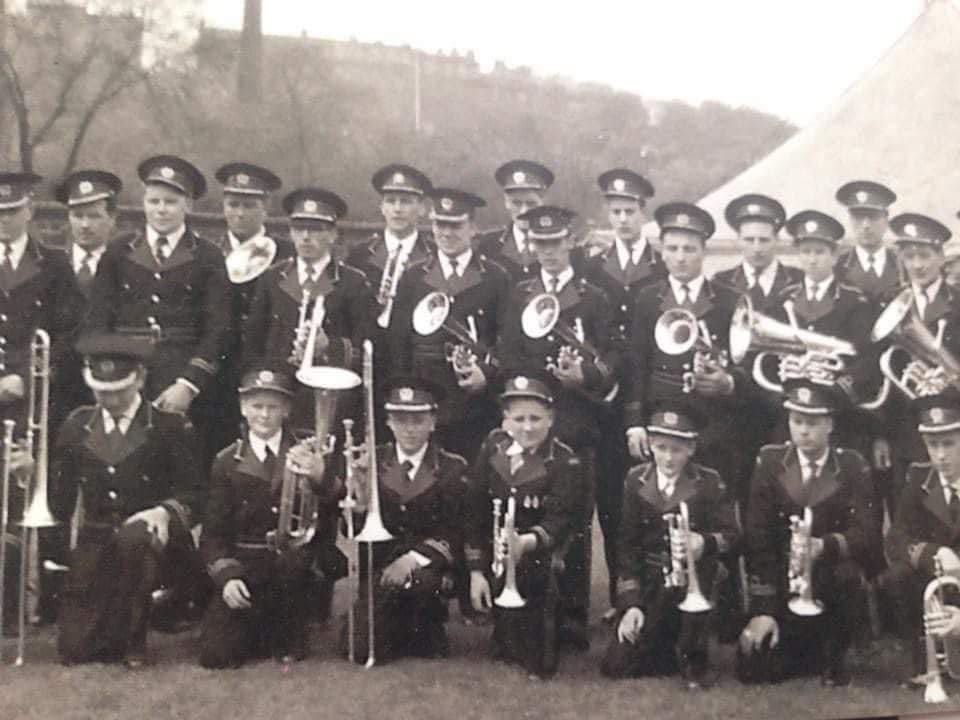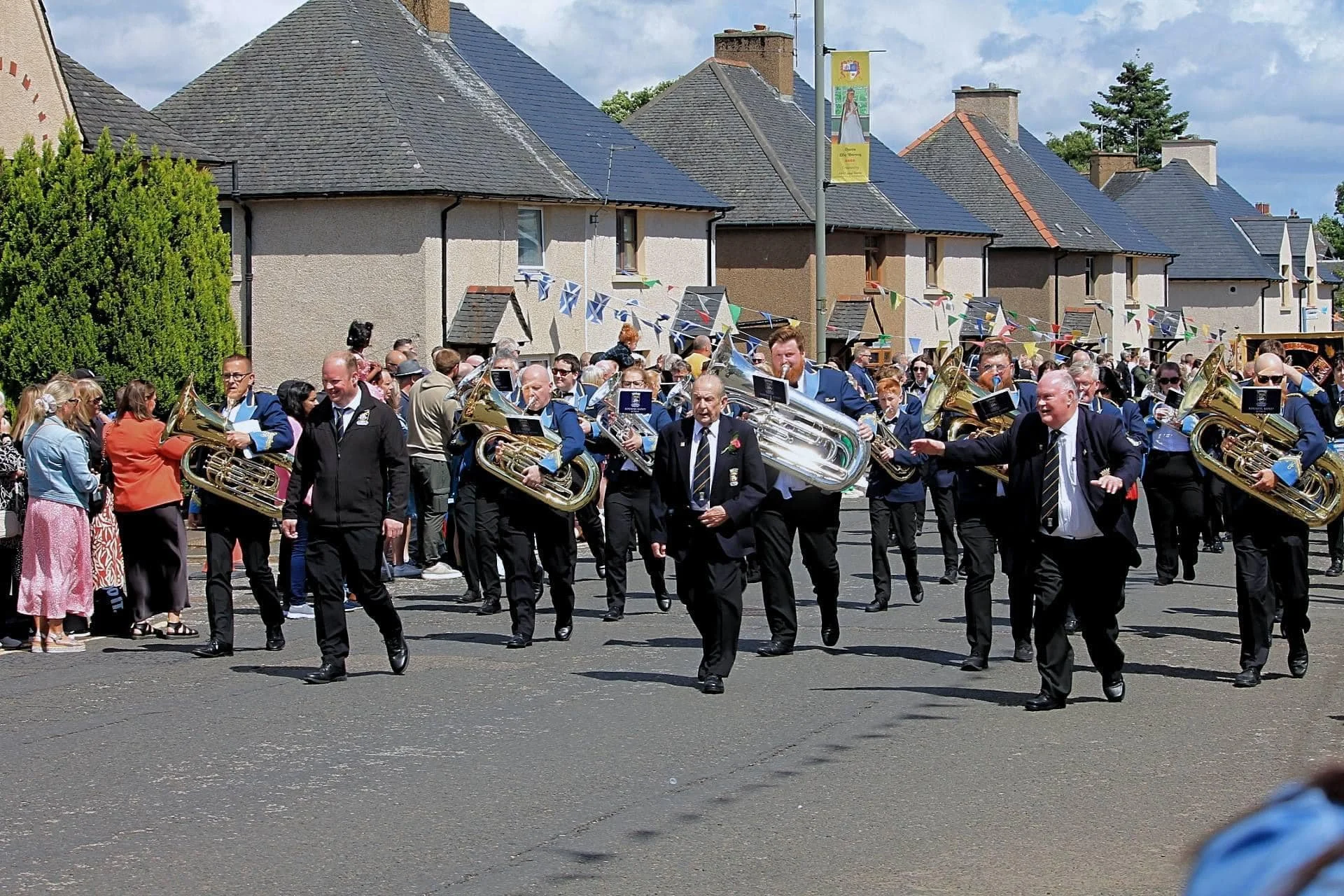
About the Band
Kinneil Band was founded in 1858 by the miners of Kinneil Pit and the workers of Wilson's Kinneil Iron Works in their home town of Bo'ness. The founder members decided to name their new band ‘Kinneil Band', famously known since that day. The bands founding members donated £5 each to enable the purchase of the band's first set of instruments.
In 1894 Kinneil Band led a parade of striking miners to a meeting with miners from nearby collieries. The management of Kinneil Colliery did not look kindly upon the support the band showed and they duly notified the band that the lease of rehearsal facilities was cancelled. Undaunted, the band then began raising funds to build their own bandhall. Astonishingly, in just over one year enough money was raised to commence building. The ground for the hall was granted to them by the Duke of Hamilton and the total cost of the hall was £350. The current bandhall exists in the same location today on Linlithgow Road Bo'ness.
The band steadily increased its reputation and continued to perform at major events around the country up until the First World War. During this time the band lost many of its members to the forces but the band still continued to practice during the Great War until the surviving members returned from the front line.
In 1953 the band decided that a change to traditional brass should occur. The band's name then changed to ‘Kinneil Colliery Silver Band' to reflect the support the band received from the miners of Kinneil Colliery. The band's most notable claims to fame came in 1959 when they won the second section national championships and in 1965, it was placed fourth in the National Championships of Great Britain despite a disastrous ending to the test piece Triumphant Rhapsody.
Kinneil maintained a strong link to the local mine workers, who subscribed to the band until the colliery closed in 1983. Shortly after the closure of the colliery, support was received from the National Union of Public Employees. In 1993, NUPE amalgamated with the other public sector unions to form UNISON and the band changed its name to UNISON Kinneil Band to mark their continued support.
In 2019, disaster struck when a massive fire tore through Newtown Park, the home of Bo'ness United Football Club, and gutted the bandhall. Over a century of trophies, memorabilia, and irreplaceable items were lost in the blaze. Yet, even in the face of this heartbreaking setback, the band’s determination remained unwavering. Today, Kinneil Band continues to thrive, carrying forward its proud tradition of music and community.

Conductors
-

Allan Ramsay
Musical Director
-

Paul Drury
Associate Conductor
Cornets
-

Dhani Miller
Principal Cornet
-

William McLaughlin
Solo Cornet
-

Willie Gardner
Solo Cornet
-

William Tawn
Solo Cornet
-

Owen Downs
Soprano Cornet
-

Nicky McLaughlin
Repiano Cornet
-

Dianne Doherty
2nd Cornet
-

Beth Drury
2nd Cornet
-

Ruth Kelly
3rd Cornet
-

Scott Gardner
3rd Cornet
Horns
-

Cheryl Saunders
Flugel Horn
-

Samuel Duzinkewycz
Solo Horn
-

Roman Scott
1st Horn
-

Robert Doherty
2nd Horn
Baritones
-

Ian Campbell
Solo Baritone
-

Billie-Jane Hamilton
2nd Baritone
Trombones
-

Vacant
Solo Trombone
-

Fiona Drury
2nd Trombone
-

Davie Frame
Bass Trombone
Euphoniums
-

Andrew Meikle
Solo Euphonium
-

Lorna Bryce
2nd Euphonium
-

Raymond Millar
2nd Euphonium
Basses
-

Vacant
Eb or Bb Bass
-

Jamie Quin
2nd Eb Bass
-

Neill McDonald
Solo Bb Bass
-

Jaiden Currie
2nd Bb Bass
Percussion
-

Michael McLaughlin
Percussion
-

Camy Marr
Percussion
-

Lauren Jackson
Percussion
-

Vacant
Percussion
